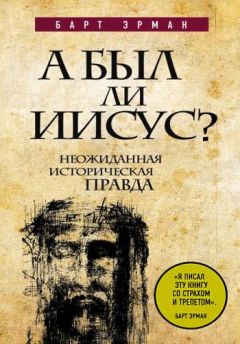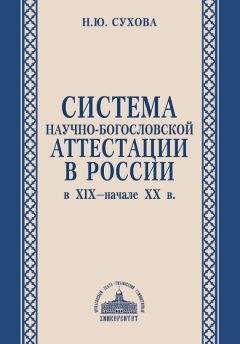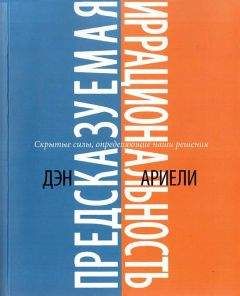73
О ессеях и кумранских текстах см. далее James Vanderkam, The Dead Sea Scrolls Today, 2nd ed. (Grand Rapids: Eerdmans, 2010).
См. подробнее мою книгу: Bart Ehrman, Jesus: Apocalyptic Prophet. Обширную информацию о древней еврейской и христианской апокалиптической мысли можно найти в издании: John Collins, ed., Encyclopedia of Apocalypticism: The Origins of Apocalypticism in Judaism and Christianity, vol. 1 (New York: Continuum, 1998).
Книга Даниила была написана последней из всех книг Ветхого Завета (видимо, около 165 г. до н. э.).
До возникновения апокалиптизма евреи не считали дьявола главным врагом Бога. В еврейских Писаниях вообще не упоминается о таком враге. Зато в апокалиптической мысли эта концепция играла важную роль.
О галльской войне Юлий Цезарь написал книги, которые до нас дошли. Такое чудесное событие, как воскрешение мертвого, и само по себе сомнительно, а тут о нем еще говорит намного более поздний и весьма предубежденный источник.
Критерий по множеству свидетельств здесь работает, хотя и в ограниченной степени — о событии сообщают лишь два источника, — но эти два источника (Матфей и Лука) противоречат друг другу в описании.
Фарисеи придерживались апокалиптического учения о воскресении мертвых (в отличие от саддукеев): см., например, Деян 23:6–8.
В некоторых разделах последующей дискуссии я активно использовал более подробный анализ, который я проделал в: Bart Ehrman, Jesus: Apocalyptic Prophet of the New Millenium (Oxford: Oxford University Press, 1999), главы 8-10.
Этот отрывок удовлетворяет критерию по несходству.
Мы имеем в виду историков, когда они высказываются как историки, а не как верующие.
На мой взгляд, Иисус сказал именно «возненавидит», а не «возлюбит более» (как в Мф 10:37): вариант у Матфея представляет собой попытку христиан, шокированных жесткостью речения, смягчить формулировку.
Цит. по пер. М.К. Трофимовой. — Прим. пер.
Независимо засвидетельствовано в Мк 3:31–34 и Евангелии от Фомы 99.
Цит. по пер. М.К. Трофимовой. — Прим. пер.
Наиболее убедительные доводы в пользу этой гипотезы привел Эд Сандерс: E. Р. Sanders, Jesus and Judaism (Philadelphia: Fortress Press, 1985), 71–76.
Подробнее о первых мифологистах см. в: Schweitzer, Quest, главы 22 и 23 (Швейцер добавил эти главы лишь после успеха первого издания книги). Также краток, но полезен обзор в: Archibald Robertson, Jesus: Myth or History? (London: Watts & Co., 1946). См. также Jonathan Z. Smith, Drudgery Divine (Chicago: University of Chicago Press, 1990), глава 1.
См. Schweitzer, Quest, глава 11.
J. М. Robertson, Christianity and Mythology (2nd ed.; London: Watts & Co., 1910).
См. Schweitzer, Quest, 381–389.
Robert М. Price, The Incredible Shrinking Son of Man: How Reliable Is the Gospel Tradition? (Amherst, NY: Prometheus Books, 2003); Price, The Christ-Myth Theory and Its Problems (Cranford, NJ: American Atheist Press, 2011).
Frank Zindler, Religions and Scriptures, vol. I of Through Atheist Eyes: Scenes from a World That Won ’t Reason (Cranford, NJ: American Atheist Press, 2011)
Thomas L. Thompson, The Messiah Myth: The Near Eastern Roots of Jesus and David (New York: Basic Books, 2005).
A. Robertson, Jesus: Myth or History? 107.
George A. Wells, Did Jesus Exist? (2nd ed.; Amherst, NY: Prometheus Books, 1986). См. также последующие его книги, в большинстве которых его аргументация не претерпевает сильных изменений и модификаций (см., однако, прим. 20): The Historical Evidence for Jesus (Amherst, NY: Prometheus Books, 1988); The Jesus Legend (Peru, IL: Carus, 1996); Cutting Jesus Down to Size: What Higher Criticism Has Achieved and Where It Leaves Christianity (Chicago: Open Court, 2009); “Is There Independent Confirmation of What the Gospels Say of Jesus?” Free Inquiry 31 (2011), 19–25.
A. Robertson, Jesus: Myth or History?
John P. Meier, A Marginal Jew: Rethinking the Historical Jesus (New York: Doubleday, 1991), 1:87.
I. Howard Marshall, I Believe in the Historical Jesus (Grand Rapids: Eerdmans, 1977). Впрочем, критика в этом абзаце дополнена пространным примечанием.
D. A. Murdock, The Christ Conspiracy: The Greatest Story Ever Sold (Kempton, IL: Adventures Unlimited, 1999).
Murdock, Christ Conspiracy, 21.
Timothy Freke & Peter Gandy, The Jesus Mysteries: Was the «Original Jesus» a Pagan God? (New York: Three Rivers Press, 1999), 2.
Robert Price, The Christ-Myth Theory and Its Problems (Cranford, NJ: American Atheist Press, 2011), 15.
См. Daniel Schwartz, «Pontius Pilate», Anchor Bible Dictionary, cd. David Noel Friedman (New York: Doubleday, 1992) 5:395–401.
William Harris, Ancient Literacy (Cambridge, MA: Harvard Univ. Press, 1989).
Catherine Hezser, Jewish Literacy in Roman Palestine (Tbbingen: Mohr Siebeck 2001).
Об источниках евангелистов см. подробнее Bart D. Ehrman, The New Testament: A Historical Introduction to the Early Christian Writings, 5th ed. (New York: Oxford University Press, 2011), главы 8 и 12.
См. анализ в: John P. Meier, A Marginal Jew: Reconsidering the Historical Jesus (New York: Doubleday, 1991), 59–69.
См. Meier, A Marginal Jew, 59–69.
Doherty, Jesus: Neither God nor Man, 534; см. анализ на cc. 533—86.
Doherty, Jesus: Neither God nor Man, 535.
Об апологетах см.: R. М. Grant, Greek Apologists of the Second Century (Louisville, KY: Westminster John Knox Press, 1988); Eugene Gallagher, Divine Man or Magician? Celsus and Origen on Jesus (Atlanta: Scholars Press, 1982).
Doherty, Jesus: Neither God nor Man, 562.
Ken Olson, «Eusebius and the Testimonium Flavianum», Catholic Biblical Quarterly 61 (1999), 305–322.
J. Carleton Paget, «Some Observations on Josephus and Christianity», Journal of Theological Studies 52, no. 2 (2001), 539–624; Alice Whealey, «Josephus, Eusebius of Caesarea, and the Testimonium Flavianum», in Josephus und das Neue Testament, ed. Christfried Bottrich & Jens Herzer (Tubingen: Mohr Siebeck, 2007), 73-116.
См. Robert Kysar, John the Maverick Gospel, 3rd ed. (Louisville, KY: Westminster John Knox Press, 2007).
Новый перевод Евангелия от Фомы сделал Златко Плеше: см. Bart Ehrman & Zlatko Plese, The Apocryphal Gospels: Texts and Translations (New York: Oxford University Press, 2011), 310–335. О содержании и богословии этого Евангелия см. мою книгу: Lost Christianities: The Battle for Scripture and the Faiths We Never Knew (New York: Oxford University Press, 2003), глава 3.
Перевод Евангелия от Петра см. в: Ehrman & Plese, The Apocryphal Gospels, 371–387. О содержании и богословии этого Евангелия см. мою книгу: Lost Christianities, глава 1.
Перевод этого текста и краткий рассказ о нем см. в: Ehrman & Plese, The Apocryphal Gospels, 245–253.
См. Ehrman, New Testament, глава 8.
Joel Marcus, Mark: A New Translation with Introduction and Commentary, 2 vols., Anchor Bible Commentary (New York: Doubleday, 2000–2009).
См. Edgar McKnight, What Is Form Criticism? (Philadelphia: Fortress Press, 1969).
См. Bart D. Ehrman, Jésus, Interrupted: Revealing the Hidden Contradictions in the Bible (and Why We Don’t Know About Them) (San Francisco: HarperOne, 2009), 107–110.
См. Ehrman, Jesus, Interrupted, 107–110.
Краткие сведения о них и английский перевод можно найти в: Ehrman, Apostolic Fathers, 1:203–321.
См. Ehrman, Apostolic Fathers, 1:23–25.
См. подробнее: Bart Ehrman, Forged: Writing in the Name of God: Why the Bible 's Authors Are Not Who We Think They Are (San Francisco: Harper One, 2011), 79-114.
См. Ehrman, Forged, 43–78.
Wells, Did Jesus Exist? 28.
См. Joel Marcus, Mark 8-16: A New Translation with Introduction and Commentary, Anchor Bible 27 (New Haven, CT: Yale University Press, 2009).
См. Victor Paul Furnish, Jesus According to Paul (Cambridge: Cambridge University Press, 1993).
См. примеры в: Wells, Did Jesus Exist? 19.
George A. Wells, The Jesus Legend (Peru, IL: Cams, 1996), 14.
George A. Wells, «Is There Independent Confirmation of What the Gospels Say of Jesus», Free Inquiry 31 (2011), 22.
Robert Price, Christ-Myth Theory, 336.
J. M. Robertson, Jesus and Judas: A Textual and Historical Investigation (London: Watts & Co., 1927).
George A. Wells, The Historical Evidence for Jesus (Amherst, NY: Prometheus Books, 1988), 168.
Price, Christ-Myth Theory, 336–343.
Price, Christ-Myth Theory, 352.
Price, Christ-Myth Theory, 349.
Cm. John Collins, The Scepter and the Star: Messianism in Light of the Dead Sea Scrolls, 2nd ed. (Grand Rapids: Eerdmans, 2010).
Richard Carrier, Not the Impossible Faith: Why Christianity Didn’t Need a Miracle to Succeed (n.p.: Lulu Press, 2009), 34; курсив Карриера.




